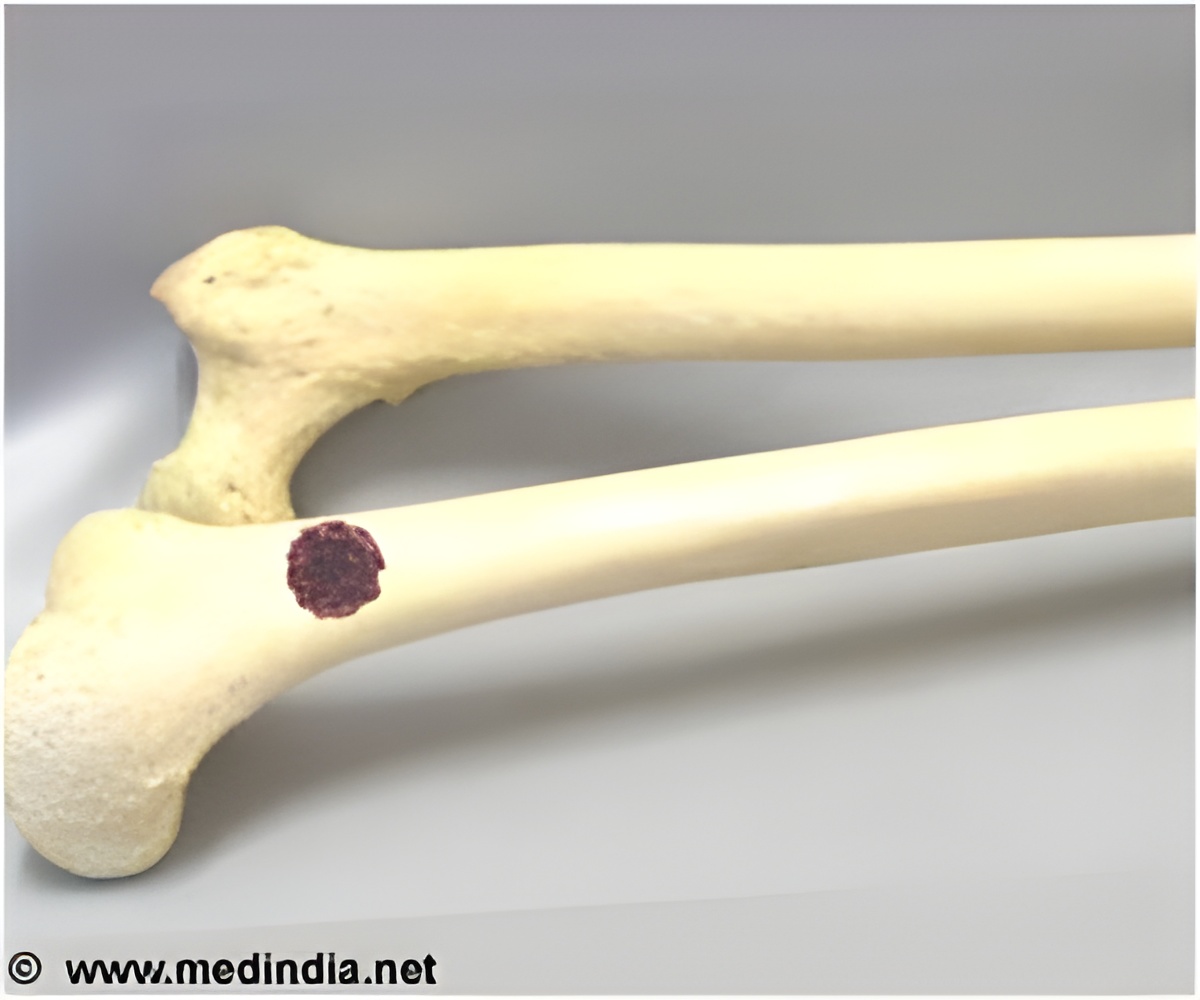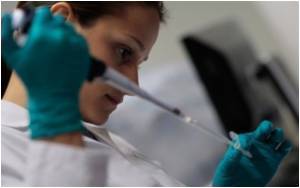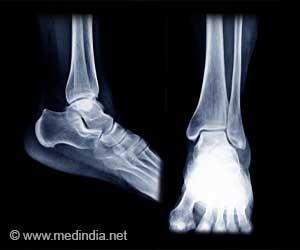Treatment with the new antibody in addition to the traditional treatment will enable us to save more bone tissue for reconstruction and thereby prevent amputations.
Primary bone cancer called Osteosarcoma (OS) is a rare cancer that degrades the bones and is associated with high mortality. It most often affects adolescents and children. While most bone cancers have their origin in other body tissues and spread to the bones through metastases, OS originates in the bone tissue.
At the Finsen Laboratory, Rigshospitalet and BRIC, University of Copenhagen a research group lead by Dr. Niels Behrendt and Dr. Lars Engelholm now shows that OS cells degrade the bone tissue through a completely different process than metastasized bone cancer. Through treatment with a specific antibody, the researchers blocked the process and reduced up to 80% of bone degradation in a bone cancer mouse model. Future treatment of OS patients with this type of antibody could reduce amputations among young patients and future studies will clarify if such a treatment strategy will also block lethal spreading of the OS cells to other organs.
TOP INSIGHT
When osteosarcoma (OS) in mice was treated with the new antibody, researchers could block the micro processes OS cells use to degrade the bones and thereby effectively protect the bone tissue.
When cancer cells from eg: breast or lung tumors invade the bones through metastasis, the bone tissue is degraded. Metastasized cancer cells then stimulate other cells in the bones to degrade the bone tissue, a mechanism also believed to take place in OS. However, examining OS tumors the research team observed that OS cancer cells express special enzymes and receptors, enabling them to degrade bone tissue themselves.
Lars Engelholm said, "By treating mice with OS with the new antibody, we could block the micro processes OS cells use to degrade the bones and thereby effectively protect the bone tissue."
The research team has great hopes for the use of this new type of antibody in development of new treatment for OS patients.
Niels Behrendt said, "A large proportion of new targeted cancer therapies are based on antibodies. We developed this antibody for basic studies of the molecule uPARAP, but when we discovered shown that this molecule is upregulated in OS tumors, we became interested in the possible treatment effect."
Treatment of OS includes removal of the cancerous bone. To prevent complete amputation of arms or legs, pre-treatment with chemotherapy is used to shrink the tumor before operation. Limitation of bone degradation in this pre-treatment period is crucial and where the researchers see a clear potential for their finding.
Surgeon Clement Trovik from Haukeland University hospital in Bergen, collaborator on the research project said, "For cancer patients, especially children and young adults, amputation of an arm or a leg is a very serious consequence of illness and we have for years been searching for therapeutics to prevent cancer-induced bone degradation. These new results show promising results for such future treatments. Treatment with the new antibody will - in addition to the traditional treatment enable us to save more bone tissue for reconstruction and thereby prevent amputations."
Source-Eurekalert

 MEDINDIA
MEDINDIA




 Email
Email






